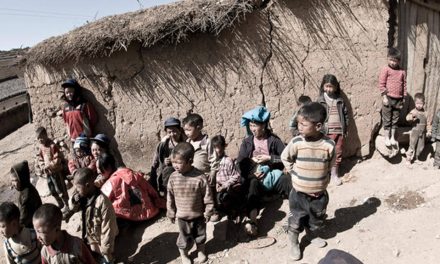By Xiaomin Zhi Xin
Note: “Xiaomin Zhi Xin” (“Voice of the Common People”) posts under this pseudonym on Twitter (https://twitter.com/Xiaominzhixin64), where he currently has roughly 57,000 followers, and on YouTube. (Both of these sites are entirely in Chinese.) This short essay speculating on what significant recent changes in the real-estate information the Chinese government collects has to say about the government’s economic situation first appeared on Yibao Chinese on May 4, 2023.
Recently, after ten years of preparation, the relevant authorities announced the comprehensive realization of unified registration of real estate. In February of this year, the authorities had announced that it took 3 years and mobilized more than 2.6 million people to finally figure out the “family background” for housing construction across the country. The scope of registration ranges from urban houses to rural homesteads, from real estate to natural resources, covering all land spaces and all real-estate rights. There are 600 million urban and rural housing units nationwide. Obviously, in order to check and register each building, the authorities have had to invest a lot of energy and financial and material resources. It is conceivable that after checking each family background and completing the unified registration of all real estate, the authorities can now fully grasp people’s real-estate information, which provides the necessary technical conditions to enable the collection of real-estate taxes.
However, the realization of unified registration of real estate came 5 years later than what authorities originally planned. Compared with other matters, it can be said that the progress of real-estate registration has been very slow. Because the task involves the real-estate market, land finance, and the most sensitive personal real-estate information, as well as the major interests of the powerful class, the authorities have always hesitated to do this. The reason why the investigation of family background and unified registration has at last been fully completed this year must be that the situation has reached a critical juncture and there is no room for further delay.
The implementation of the real-estate tax has been brewing for some time. Over the years, there has sometimes been news that the tax is about to be levied, but in the end there was no follow-up, in the manner of the boy who cries wolf. As a result, many people believe that the real-estate tax cannot be truly implemented. For the authorities, there are indeed certain risks in the collection of property taxes, which may have a huge impact on the real-estate market, in part because families who own multiple houses will decide to sell some of them, creating a wave of sales of existing housing. If this is the case, it will inevitably seriously affect the sales of new houses as well as houses sold before construction has even occurred. This could lead to a sharp drop in housing prices, resulting in a financial crisis. In addition, when the real-estate tax is comprehensively levied, vested interests who hold a large amount of real estate will bear the brunt, since they own larger amounts of real estate. Letting them bear the property tax will inevitably arouse their dissatisfaction and may shake the authority’s ruling foundation. This is probably an important reason why the authority has not yet pushed forward the property tax.
However, the situation has changed in recent years. The land income of local authorities has dropped sharply, and thus local finances are in trouble, and overall levels of public debts are now high. How to deal with the serious financial crisis/debt problem has become the top priority of the highest authorities. In early February this year, Lou Jiwei, the former Minister of Finance, published an article titled “China’s Fiscal System — Reform and Future Prospects in the New Era,” which said that real-estate taxes are the most suitable taxation method with respect to local taxation. After the economy returns to normal growth, pilot projects should be launched as soon as possible. Such rapid development is enough to explain the urgency of the situation. After all, land-transfer fees are shrinking, and the introduction of a real-estate tax may become an important tool for local authorities to plug the fiscal gap. And the fact of the matter is that except for a property tax, the authorities have already collected almost all the taxes that can be collected. Of course, the authorities are also worried about the possible adverse effects of imposing property taxes. Therefore, while preparing to levy such taxes, they are also afraid that people will learn about the levy.
It is conceivable that if the property tax is levied, it means that the financial difficulties of the authorities have reached an insurmountable level. Given this, the authorities will definitely expand the tax base to the maximum extent, and will collect taxes on all residences; even families with only one residence will not be exempt. Done this way, it will not be only the vested interest groups with a large number of houses who will be affected, but all the people. The authorities will not want to take chances. They will unquestionably levy a real-estate tax not to equalize the rich and the poor, but to expand their revenue. Those small and medium-sized cities with a relatively undeveloped economy have especially inadequate tax bases, and they will not let go of any possible tax sources. However, in those economically undeveloped places, the people’s income is meager, especially those in the bottom income tiers who have borrowed to buy a house. For them it is already very difficult to service their home loans. It may be unbearable for many people to also pay property taxes. Those ordinary households that do own more than one house may be in a particularly desperate situation. As the saying goes, there are dead eggs under the overturned nest.
Another area that merits concern is the taxation of rural housing. Judging from the current situation, unless some places are particularly developed or have particularly beautiful scenery, in general real estate in rural areas will not have much value. However, the places with the most serious financial difficulties are low-income counties and cities, many portions of which are rural. If such places only levied taxes on urban housing, they would certainly not be able to meet the expenses of local authorities. As mentioned above, the authorities have spent huge financial and material resources on checking family backgrounds for all real estate, and a lot of these resources have been used to survey real estate in rural areas. This must be in preparation for taxation. Once the property tax is levied, for many rural people, their rural residences may actually become negatively valued assets. Especially for the elderly who live alone, this would be a disaster. It can be said that the collection of property taxes in rural areas would be another major exploitation of farmers, and may even once again result in tragic scenes as the taxes are collected. The authorities may pay a huge political price for this.
We can see that real-estate companies, and related experts and scholars, are extremely sensitive and alert to the possible consequences of real- estate taxation. Now the authorities have announced the full realization of the unified registration of real estate. Some real-estate experts issued a document saying that in the short term, the probability of actual implementation of such taxation is rather low, that it does not follow that the unified registration of real estate means the actual collection of real estate tax, etc. This is obviously to reassure people, so that more will buy houses, and it lets them hold multiple properties with peace of mind. In fact, every time the authorities introduce measures involving a real-estate census and registration, some real-estate experts will immediately issue statements saying such things, trying to downplay the impact. Obviously, real-estate companies are not happy to see the introduction of property tax.
China’s economy grew rapidly for more than 20 consecutive years, the government’s fiscal revenue particularly so. However, governments at all levels now have huge debts. This is the problem. If the expenditures of governments at all levels cannot be controlled, no amount of taxation can solve the problem. This is a problem that a totalitarian government cannot solve, and its fatal flaw. Hundreds of millions of people have no say in their taxation, and can only be led to the slaughter. In fact, China’s economic development is now restricted. The most important thing facing people is that they lack the means for basic consumption. The reason is that governments at all levels use various means to collect excessive taxes, but then provide too little welfare. The people have no money, so they dare not consume. Especially for those families who have purchased homes, they pay a tremendous amount of taxes and fees to the government, as more than half of what they pay is merely for land costs and for various taxes and fees paid directly to the government. And so it is certain that once the new real-estate tax is levied, it will inevitably have a major impact on the consumption of all urban and rural people in the lower strata of society, forcing them to continue to reduce their consumption, leading to a further downturn in China’s economy.
Throughout history, it can be seen that when empires collapse for internal reasons, at the end there is a serious financial crisis, which in hindsight is the root cause of the empire’s collapse. The CCP regime is now facing a serious financial crisis, and it obviously fears this greatly. Levying property taxes is undoubtedly a major measure to try to resolve this financial crisis, but it may also bring about disastrous outcomes. Obviously, when considering whether to levy a property tax, the highest authorities face a dilemma. If it is not levied, with respect to the huge financial deficit and outstanding debt, already difficult to make up, the situation will become more and more serious. If things go on like this, it may lead to serious financial and political crises. But the introduction of a property tax may lead to a decline in housing prices and will further damage the real-estate industry. It may even cause a complete collapse of the real estate market, which will also bring serious economic and even political consequences. However, up to now, in the face of serious financial difficulties, and serious debt problems in particular, the highest authorities have seemed helpless, without a plan that will address the problem. There is now no other option but to take the risk of imposing property taxes. It is conceivable that the introduction of property tax will be the authorities’ last, desperate decision.
This piece was translated from Yibao Chinese. If republished, please be sure to add the source and link https://www.yibao.net/2023/05/11/voice-of-the-common-people-chinas-fiscal-crisis-is-more-serious-by-the-day-the-authorities-are-on-the-verge-of-a-fatal-decision/ before the text when reposting.
The views of the author do not necessarily represent those of this journal.





















